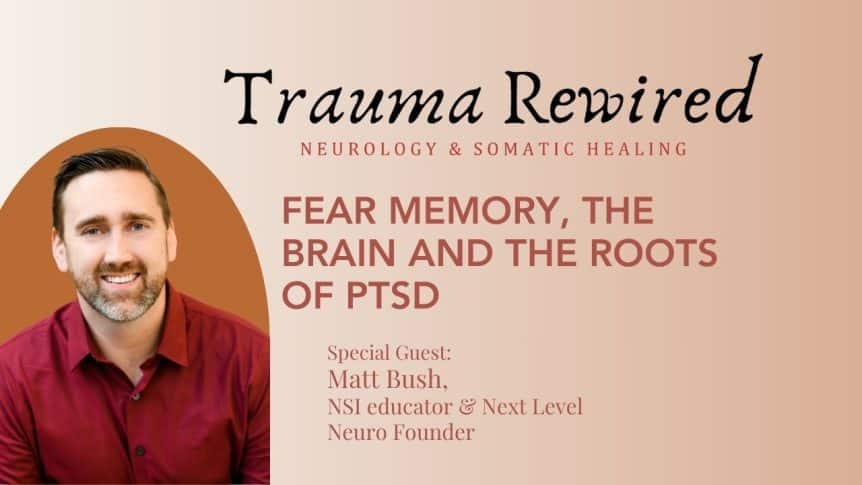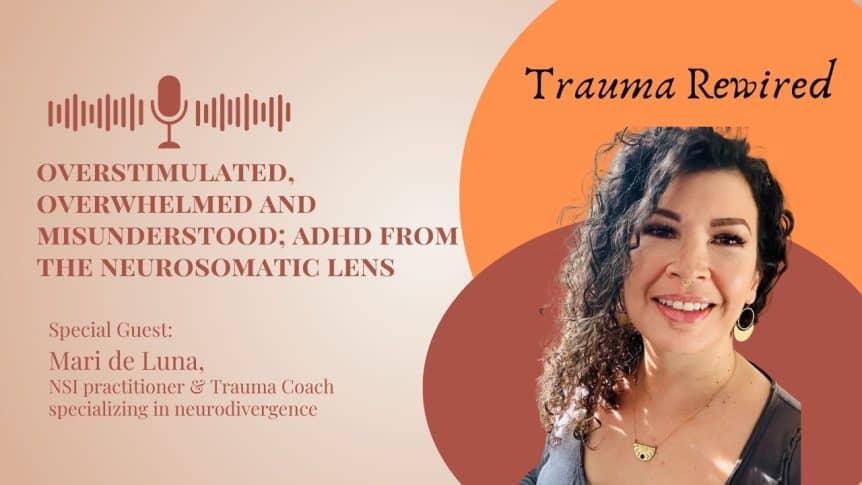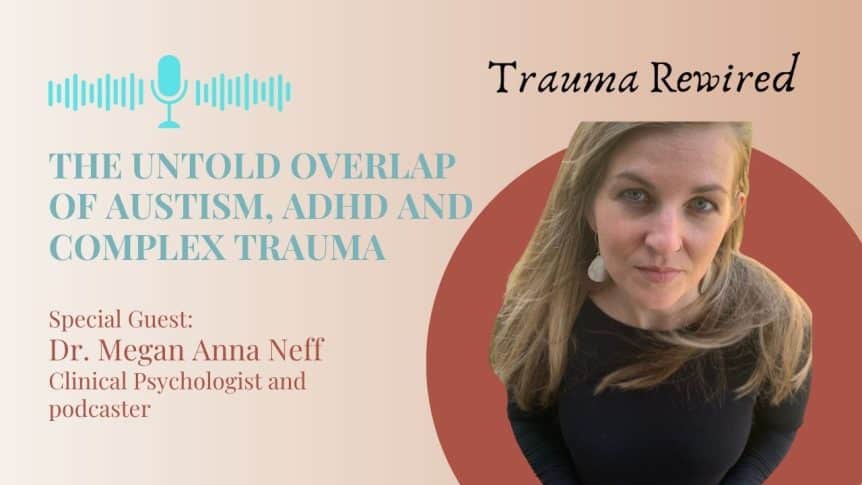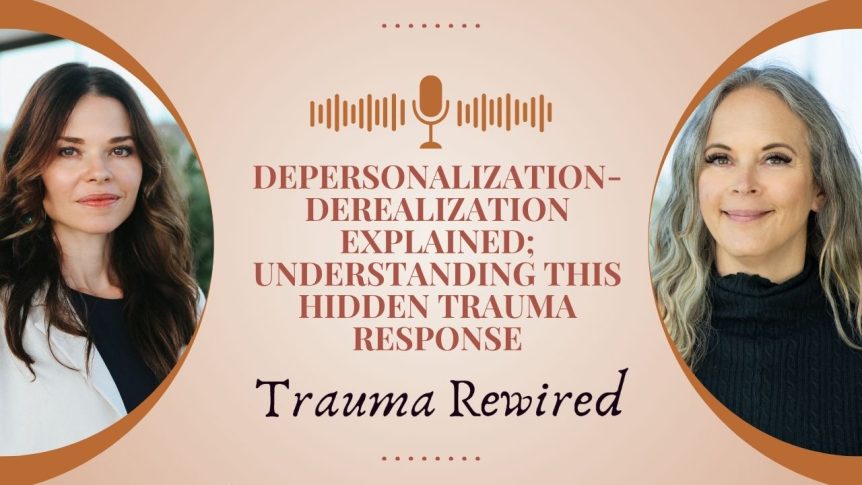Why do some people develop PTSD after trauma while others recover? What if it’s not about the trauma itself, but the state of your nervous system when it happens? In this episode of Trauma Rewired, we’re joined again by Matt Bush, founder of Next Level Neuro and a lead educator in the Neurosomatic Intelligence program, for a deep dive into …
When we think of ADHD, we often define it as a list of symptoms: distractibility, impulsivity, hyperactivity. But what if this view is incomplete? What if ADHD is not a deficit at all, but an intelligent set of adaptations your nervous system made to survive in a world that didn’t feel safe? In this episode of Trauma Rewired, we’re joined …
When we think of autism, ADHD, or even trauma, we often place them in separate boxes, as distinct diagnoses with different treatment paths. But what if the reality is far more connected? What if complex trauma itself is a form of neurodivergence? What if masking, sensory overwhelm, and dissociation are not flaws to be fixed, but intelligent adaptations of a …
We often think of trauma healing as a personal journey, a solitary path shaped by diagnosis, insight, and effort. But what if true transformation isn’t cognitive at all? What if the real healing starts in the nervous system, in the body, and in community? In this powerful close to Season 4 of Trauma Rewired, we reflect on the deepest insights …
We often think of gut health as a matter of diet. What we eat, how we digest, and how we eliminate. But what if your digestive issues, bloating, or IBS symptoms aren’t just physical? What if your gut is holding onto unprocessed emotional trauma, stress, and nervous system dysregulation? In this episode of Trauma Rewired, we’re joined by Christy Nault, …
We often think of trauma as a deeply personal experience, shaped by our childhood, relationships, and emotional wounds. But what if some of our deepest pain didn’t start with us? What if trauma is embedded in the very systems we’re born into – our medical institutions, cultural ideologies, and societal norms? In today’s episode, we’re joined by Dr. Tayla Shanaye, …
What happens when your body feels more than your mind can make sense of? In this deeply grounding episode of Trauma Rewired, we open up a necessary and often overlooked conversation about peak somatic experiences—powerful moments of healing that happen in the body, not the mind. Whether you’re drawn to psychedelics, breathwork, or trauma release exercises, this episode unpacks the …
“Integration” is a word that gets thrown around in the healing world, but what does it really mean? In this powerful episode of Trauma Rewired, Elisabeth and Jennifer unravel the true meaning of integration, not as a final step, but as the heart of sustained transformation. Without integration, even the most profound somatic release, emotional breakthrough, or psychedelic insight can …
Society has long framed addiction as a character flaw—but at Trauma Rewired, we know that couldn’t be further from the truth. Addiction isn’t about who we are at our core; it’s about how we’ve learned to survive in chaotic, neglectful, or unsupported environments. As humans, we’re always seeking homeostasis. When we don’t have the tools—or the environment—to support that, we …
Our brain and nervous systems are incredibly protective—they can shield us from overwhelming stimuli by shutting out sensations. This mechanism plays a central role in depersonalization and derealization (DPDR), causing you to feel detached and like you are observing yourself from a distance. While these dissociative states can offer short-term protection, chronic experiences can lead to further dysregulation as unprocessed …





